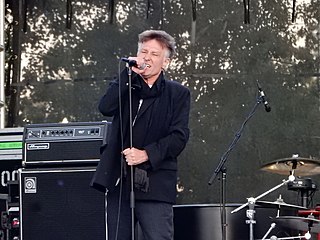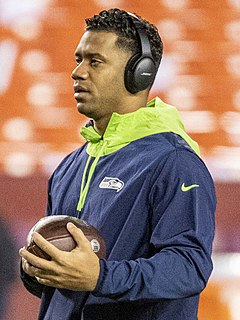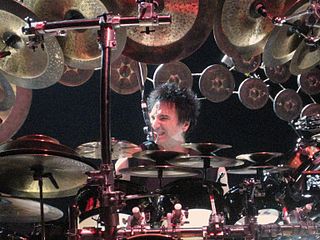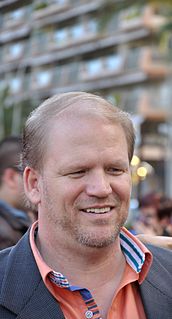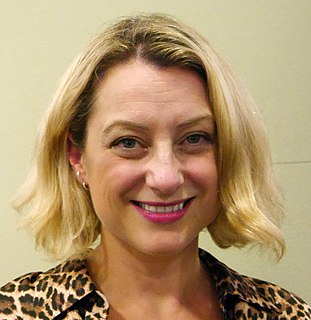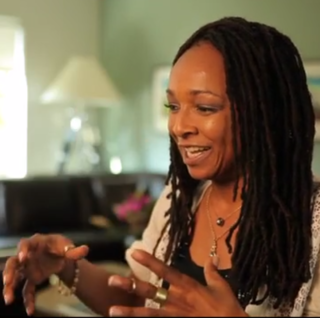A Quote by Anna Quindlen
The closest thing to an outline is, because my memory is so bad now, if something occurs to me that I think might be important or pivotal, a lot of times I'll scribble notes down somewhere until I can get back to the book. Of course half the time I look at those notes the next morning and think, "What was that about?"
Related Quotes
Songs, and songwriting keeps me inspired, moving forward. I tend to scribble down notes, lyrics or just random thoughts on pieces of paper, backs of cigarette packs, sometimes on my shirt cuff. Rock n’ roll is closest thing I’ve got to a spiritual power. It’s been the higher voice in my life and it’s never let me down.
I’ll write down little lines, I always say, 'K.T.N.,' and I say that to my receivers and running backs and that means 'keep taking notes.' That keeps me alert. That keeps me going. That keeps my drive there, even when you’re taking notes on something that you’ve already taken notes on a million times - keep taking notes.
What I think is important about essayists, about the essay as opposed to a lot of personal writing is that the material has to be presented in a processed way. I'm just not interested in writing, "Hey, this is what happened to me today." You get to a place that has very little to do with your personal experience and talks about some larger idea or something in the culture. I don't think you can get to that unless you have had a lot of time to gestate and maybe if I was taking a lot of notes while stuff was going on, I wouldn't be able to get to that place as easily.
I think the Resurrection continues to be a pivotal issue, a pivotal question for people. I think a lot of other issues have been raised in interim years, about the nature of truth, of course gender issues, issues involving social matters like abortion and euthanasia and so forth, those swirl about and change from time to time, but I think the fundamental question of whether or not Christianity is true ultimately goes back to the Resurrection.
Half the stuff I've written was written when I was half asleep watching the David Letterman show when some boring actress was on talking about herself. I would just mute the TV, look over to the computer and start plugging in notes. Then the next morning you go "Wow, I like this". I'd almost forget what I did, and then it would inspire me to go on and do the next thing. That's what I do. Just kind of follow my own little thing.
Memory is strange. Scientifically, it is not a mechanical means of repeating something. I can think a thousand times about when I broke my leg at the age of ten, but it is never the same thing which comes to mind when I think about it. My memory of this event has never been, in reality, anything except the memory of my last memory of that event. This is why I use the image of a palimpsest - something written over something partially erased - that is what memory is for me. It's not a film you play back in exactly the same way. It's like theater, with characters who appear from time to time.
You get notes from two studios and a network instead of a studio and a network. Although we early on forced them all to do their notes together. I make them all talk to each other first. Because we went through the pains of getting notes from ABC and at the time it was Touchstone, that were opposite - and then CBS notes that were opposite again. So it was, you guys are going to have to work it out as to what is the most important note.
I think all those years that I spent as a nurse, from the age of seventeen, just allowed me an insight into human emotion at those times of life when it's so important. And to see and witness those times of grief and love and loss and all those things was such a huge privilege, both in my own personal life, but it also, I think, spills over into my writing. I think the one thing that most novelists have is some degree of emotional intelligence, and if you don't have that, then perhaps you might struggle to be a novelist, because that has to come out somewhere.
What happened was I was a songwriter on Quincy Jones' publishing company, Qwest, for two and a half years before I gave him the song for Michael Jackson. He had a meeting with the songwriters. I think there were about six of us on the West Coast and we all had a meeting at his house where he sort of gave us an outline of what he wanted. To finish this BAD album Jones needed one more song to round out the album. I took notes and then I then took my notes to my writing partner Glen Ballard.
I could stay depressed about my bad memory, but that's a negative way to live. Let's look on the bright side and list the advantages of having a bad memory.
(1) You can reread a book and see a movie over and over and enjoy it as much as the first time.
(2) If you make an inconvenient promise, you can pretend that you forgot about it and still be forgiven.
(3) This is the most important thing: you can keep coming up with ideas without being held back by convictions or the past.
I don't drive, so one of my assistants drives me to my writing room, and I have a calendar on the wall telling me how much time I have left, and how far behind I am. I look at it and panic, and decide which scene to work on. And you sit there plonking notes until something makes sense, and you don't think about it any more. Good tunes come when you're not thinking about it.



